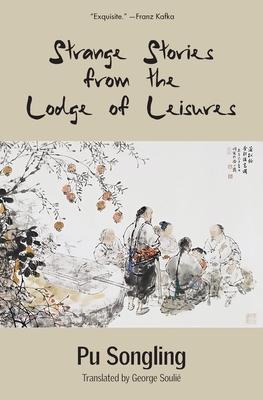Strange Stories from the Lodge of Leisures gathers twenty-five stories from Pu Songling's collection of more than four hundred short stories-exquisitely amusing miniatures that are regarded as the pinnacle of classical Chinese fiction. His work departed from the prevailing literary fashion that was dominated by more realistic stories written in the colloquial language. Pu instead wrote his stories in the classical idiom, freely adopting forms and themes from the old "marvel tales" of the Tang and Song dynasties. Although Pu lived and died as an obscure provincial schoolteacher, his work gained fame when it was first printed in 1766, some fifty years after his death, inspiring many imitations and creating a new vogue for classical stories. His tales have not only spawned translations, adaptations, and sequels, but have also inspired world-renowned writers such as Franz Kafka, Lafcadio Hearn, Jorge Luis Borges, and Mo Yan.
Pu's tales are populated with ghosts, foxes, immortals, and demons, but he focused on the everyday life of commoners. He used the supernatural and the unexplainable to illustrate his ideas of society and government, to criticize the corruption and injustice in society, and sympathized with the poor. Pu is concerned with four main themes: the skewed feudal system, the corrupt examination system of his day, the love between poor scholars and powerless women, and reforming bad behavior. He embedded Confucian-styled moral standards and Taoist principles into parables but the enduring genius of his writing is that it never fails to entertain even as it aims to enlighten.
